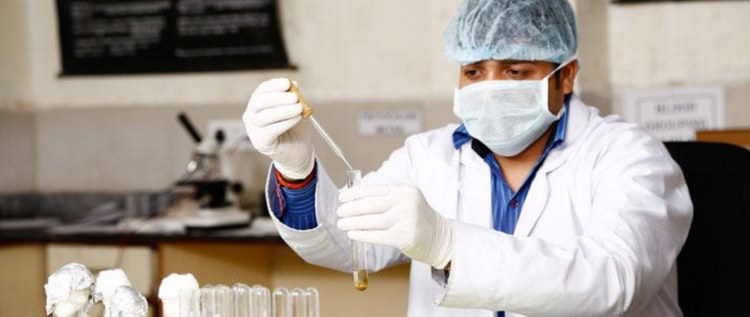What is BMLT ?

BMLT stands for Bachelor of Medical Laboratory Technology. It is an undergraduate academic degree program that focuses on training students in various laboratory techniques and procedures used in medical diagnosis and research. BMLT programs are designed to prepare students for careers as medical laboratory technologists, who perform laboratory tests, analyze samples, and assist medical professionals in diagnosing and treating diseases. Here are some key points about BMLT programs:
Duration: BMLT programs typically have a duration of three to four years, although the duration may vary depending on the country and educational institution. The program includes both theoretical instruction and practical training in laboratory techniques and procedures.
Curriculum: The curriculum of BMLT programs covers a wide range of subjects related to medical laboratory technology, including clinical biochemistry, hematology, microbiology, immunology, pathology, histopathology, cytology, blood banking, molecular diagnostics, and laboratory management. The program aims to provide students with a comprehensive understanding of laboratory science and prepare them for careers in medical laboratory technology.
Laboratory Techniques: BMLT programs train students in various laboratory techniques and procedures used in medical diagnosis and research, such as sample collection and processing, microscopy, centrifugation, staining, culture and sensitivity testing, serological testing, molecular diagnostics, and quality control measures.
Clinical Training: BMLT programs include clinical rotations or internships in medical laboratories, where students have the opportunity to gain hands-on experience in performing laboratory tests and procedures under the supervision of experienced medical laboratory technologists or pathologists. Clinical training is an essential component of the program and provides students with practical skills and competencies necessary for their role as medical laboratory technologists.
Licensure and Certification: Upon successful completion of a BMLT program, graduates may be eligible to apply for licensure or certification as medical laboratory technologists in their respective jurisdictions. Licensure or certification requirements vary depending on the country and may include passing a national licensing examination and meeting other regulatory requirements set by the medical regulatory body.
Career Opportunities: Graduates of BMLT programs are qualified to work as medical laboratory technologists in various healthcare settings, including hospitals, clinics, diagnostic laboratories, research laboratories, blood banks, pharmaceutical companies, and public health laboratories. They play a crucial role in performing laboratory tests, analyzing samples, and assisting medical professionals in diagnosing and treating diseases.
Overall, BMLT programs provide students with the knowledge, skills, and practical training necessary to pursue careers in medical laboratory technology and contribute to the field of healthcare by ensuring accurate and reliable laboratory testing and diagnosis.
